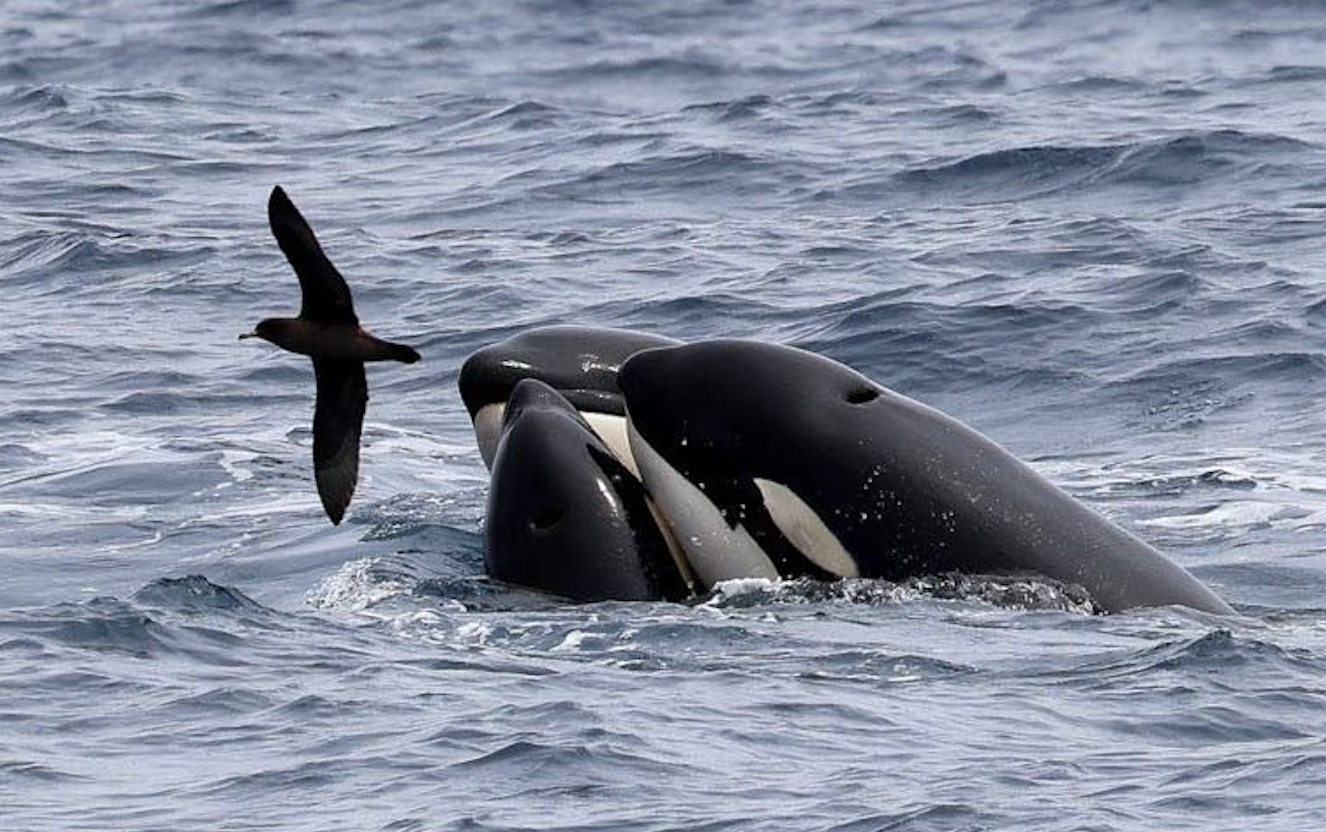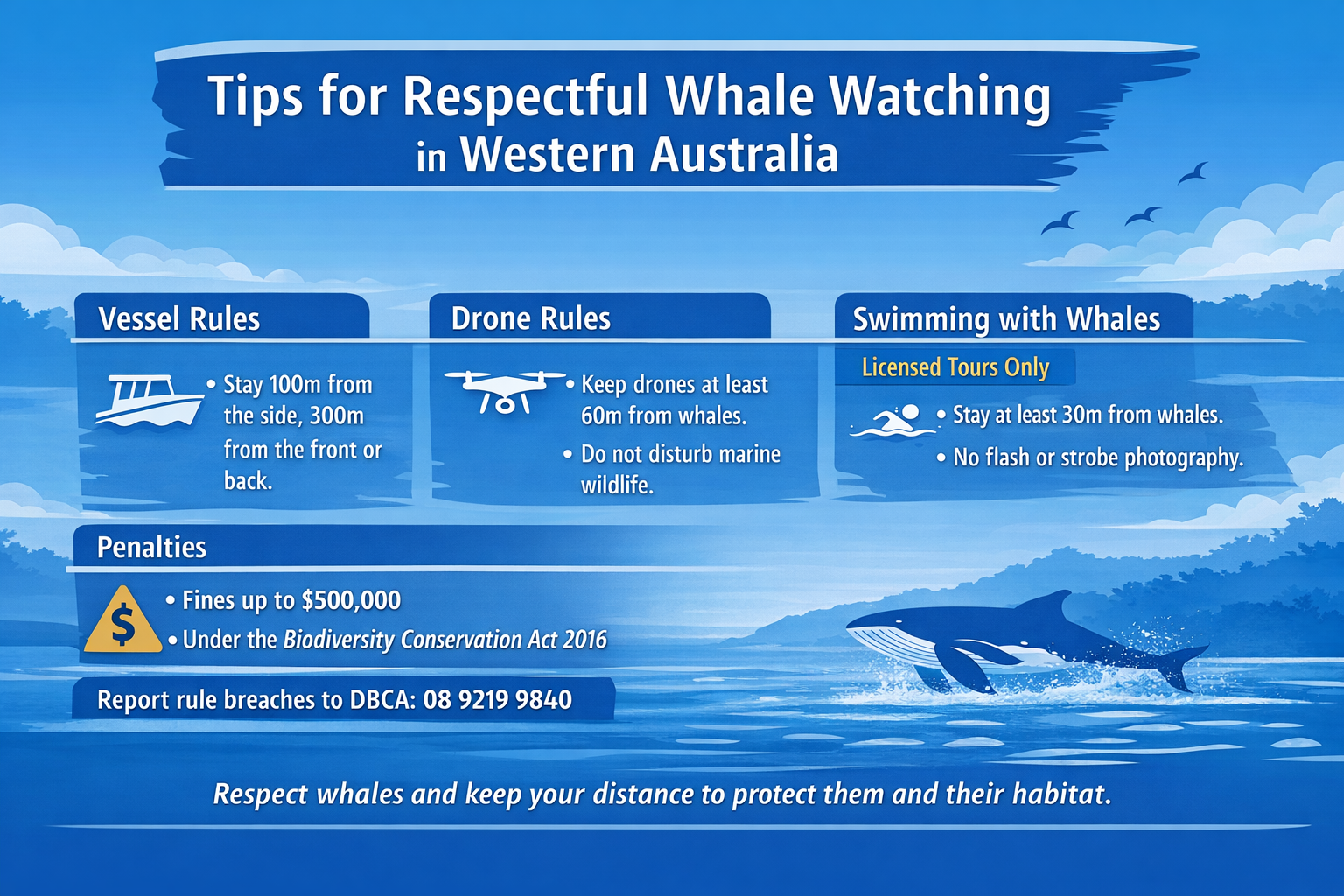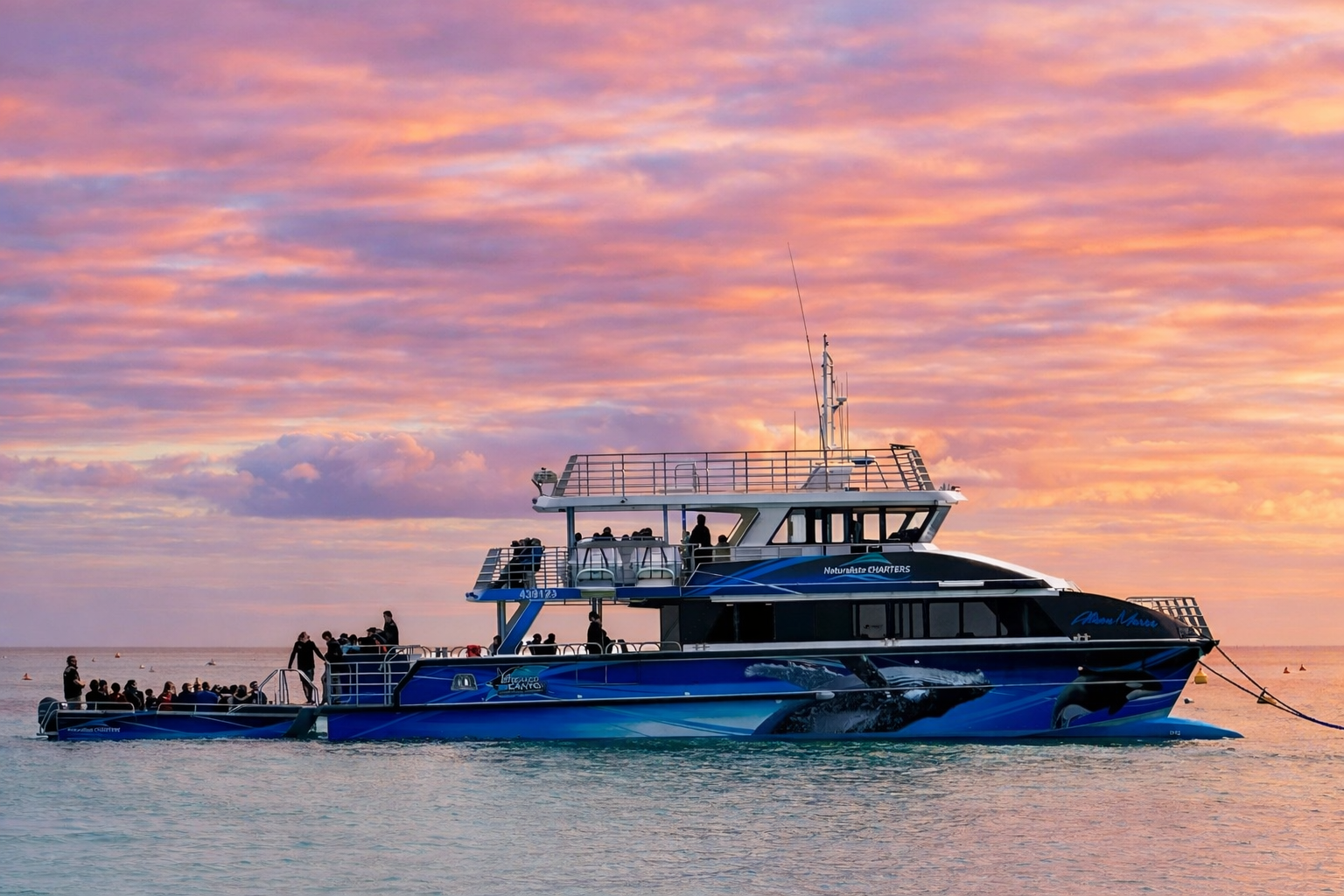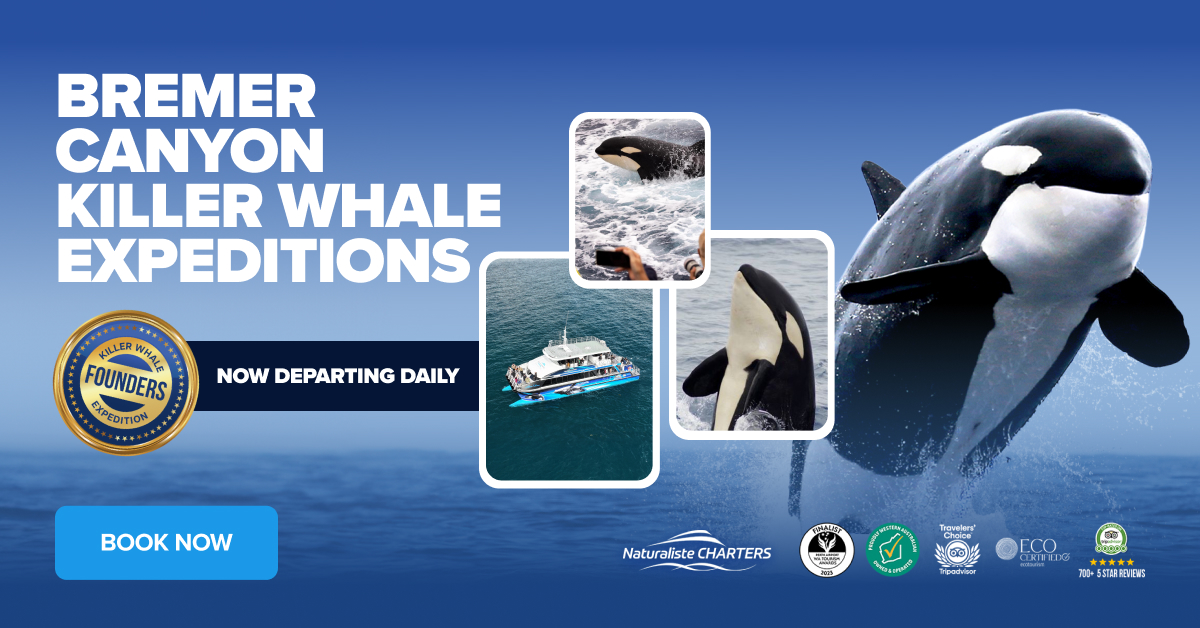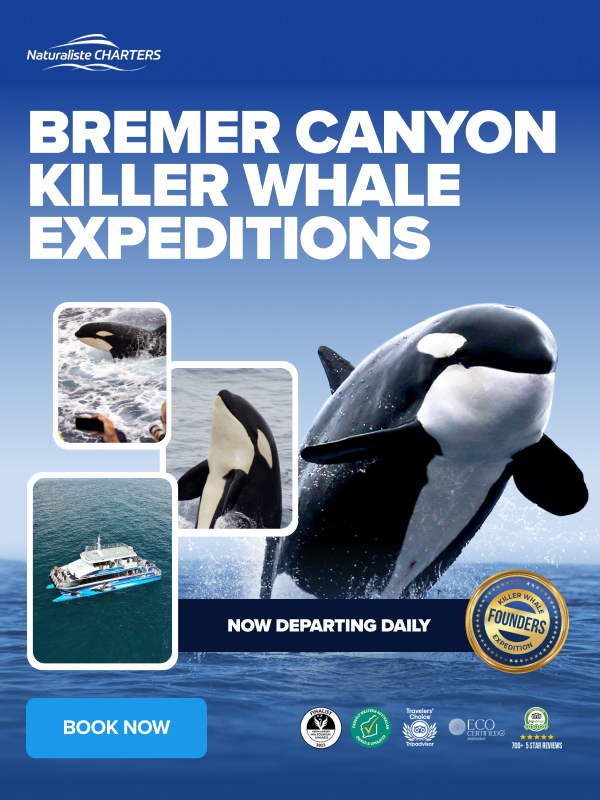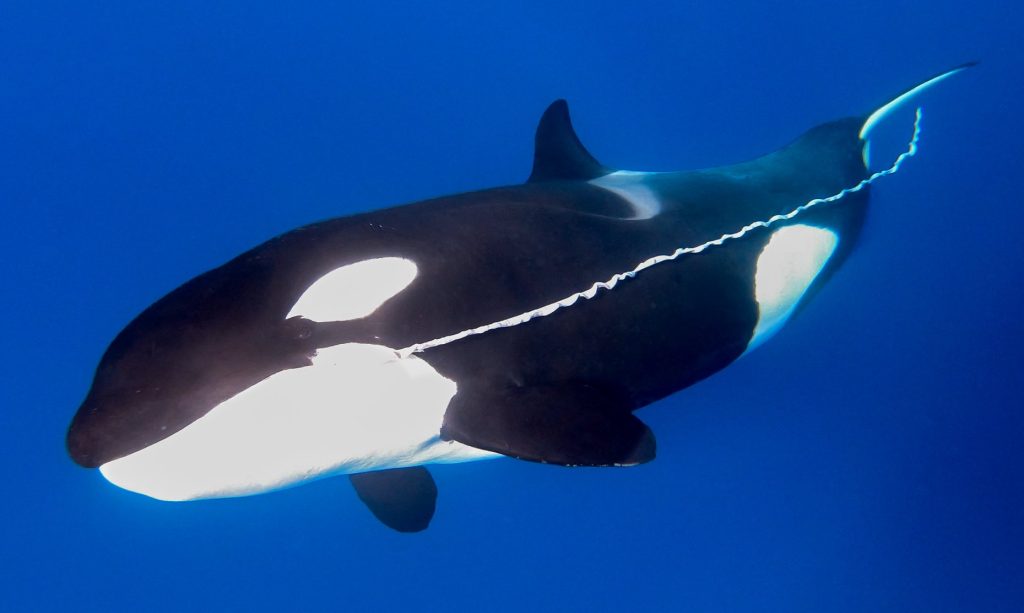
Unveiling Orca Diets in the Bremer Sub-Basin
We are excited to announce a new collaboration for the upcoming season. Naturaliste Charters will be working with researchers from Oceans Blueprint and Edith Cowan University. Together, we will investigate the feeding ecology of orcas (Orcinus orca) observed seasonally in the Bremer Sub-Basin, Western Australia.
The Bremer orcas are thought to be generalist feeders (Wellard, 2018). Records show them preying on fish, squid, and sharks (Salgado Kent et al., 2020; Wellard et al., 2016). They have also been known to hunt toothed whales, including beaked whale species (Ziphiidae and Mesoplodon spp.). Furthermore, they have preyed on baleen whales such as humpbacks, Antarctic minke whales, and blue whales (Totterdell et al., 2022). However, questions about the diet of this orca population remain. Therefore, improving our understanding of these apex predators is vital for conservation and ecosystem management.
A Unique Opportunity for Research
Naturaliste Charters provides a rare platform for research in a region where studies are limited. Our vessel, Alison Maree, visits the remote Bremer Sub-Basin between December and April each year. Consequently, this regular access creates unique opportunities to collect valuable information on the orca population.
During tours, we sometimes observe predation events on large, often unidentifiable prey species. Usually, we capture only fragments of the action at the surface. Behavioural cues, tissue remnants, or oil slicks provide clues. However, many questions remain unanswered. As a result, dedicated research is essential to uncover more detail.
The Bremer Sub-Basin Sampling Project
In the 2025/26 season, we are launching the Bremer Sub-Basin Sampling Project. Our marine biologists will support researchers from Oceans Blueprint onboard our daily charters. Together, they will collect tissue samples and water for environmental DNA (eDNA) analysis.
This process will help identify prey species forming part of the orca diet. In addition, by combining our local knowledge with expertise in marine ecology and genetics, we aim to better understand predator-prey dynamics. Consequently, the project will reveal valuable insights into the ecology of prey species, many of which remain ‘Data Deficient’ under the IUCN. Therefore, any additional information will broaden understanding of the Bremer Canyon ecosystem.
Conservation Through Collaboration
This collaboration highlights how eco-tourism can advance marine science. By using daily expeditions as research opportunities, we contribute to conservation while offering memorable experiences for passengers.
Moreover, we are proud to support research that showcases the ecological importance of the Bremer Sub-Basin. This work also emphasises the role of orcas that return each summer.
All research will be conducted under Animal Ethics Approval and with Marine Park, Commonwealth, and Cetacean Research Permits.
REFERENCES
Salgado Kent, C., Bouchet, P., Wellard, R., Parnum, I., Fouda, L., & Erbe, C. (2020). Seasonal productivity drives aggregations of killer whales and other cetaceans over submarine canyons of the Bremer Sub-Basin, south-western Australia. Australian Mammalogy, 43, 168–178. 10.1071/AM19058
Totterdell, J., Wellard, R., Reeves, I., Elsdon, B., Markovic, P., Yoshida, M., Fairchild, A., Sharp, G., Pitman, R. (2022). The first three records of killer whales (Orcinus orca) killing and eating blue whales (Balaenoptera musculus). Marine Mammal Science, 38, 1-16. 10.1111/mms.12906.
Wellard, R., Lightbody, K., Fouda, L., Blewitt, M., Riggs, D., & Erbe, C. (2016). Killer whale (Orcinus orca) predation on beaked whales (Mesoplodon spp.) in the Bremer Sub-Basin, Western Australia. PloS ONE, 11(12), e0166670. 10.1371/journal.pone.0166670
Wellard, R. (2018). Vocal repertoire, social structure and feeding preferences of Australian and Antarctic killer whales (Orcinus orca). Curtin University.

